2020 (bio)Diversity Interview Series: Vance Martin
We asked WILD’s program directors to share with us their biggest hopes for our future and the obstacles they face to help us get there. Each week until the end of the year, our team will publish their answers to these, and other questions, in our year-end, (bio)Diversity interview series.
This week, we feature Vance Martin and the role he is playing to protect wilderness throughout the world.
The reality is that without wild nature on this planet in sufficient size, function and beauty, human health, prosperity, sanity — and eventually survival — is not possible.
The Challenge is that 98% of the world’s population either does not know this reality or lives in active denial of it. This is normally because they are too focused on making money from, or being the victim of, a human growth and development model that is totally exploitative and based on the consumption of nature in myriad forms. This model is virtually always a one-way progression from nature, to product, to waste, and liberally sauced with toxic chemicals that destroy nature and human health.

WHAT I DO AND WHY
My ‘project’…life’s work…has been to bring wilderness awareness and protection into the center of our world as an essential element of human life, not a luxury. What I knew intuitively as a child I have elaborated in my mind as I gained experience, grew into myself, and worked/studied/acted on this obsession. Wilderness has three essential aspects which, when combined, create a singularity unlike other conservation issues:
- practicality – wilderness provides life-supporting services and we need to have enough of it for it to do so — it needs to be protected
- values – we were born and evolved in wilderness, she is our Mother, we need to respect our Mother
- mystery – we know so little about how wilderness works to make life possible and beautiful. Humility is a good thing – we are not the know-it-all we think we are.
PRELUDE— A (VERY SUMMARY) STORY… Takeaway –> Challenges can become gifts— and the only thing we fully control is our own attitude
I knew from day one, as a child, that I liked nature and wanted to be a forest ranger. There was no elaborate philosophy or mental construct – it was too early in life for that, obviously. Nature was always inside me. One of the earliest observations I remember was, as a three year old, looking through the screen door of our apartment on a hot summer day in Memphis and seeing woodpeckers nesting in a tall, straight trunked tree in the middle of the courtyard. I wondered to myself if those were the same birds that nested there last year. As a young boy, the only time I was not hyper-active was when I was in the woods.
I finally realized my dream and selected the best university to study forestry (a public, land-grant university) and in the process turned down a full scholarship to play lacrosse at a private college. It took me 18 months at university to realize that a “forest ranger” was essentially either a large-scale tree farmer, a tree scientist, an engineer, or a biologist. I was none of those, and it was too early in higher education for there to be degrees in things like environmental studies, environmental law, nature journalism and communications, etc. I realized what I was doing just wasn’t working for me and didn’t feel right, so I quit; so much for a life’s dream. Since it was the Vietnam era, I knew what would happen if I dropped out entirely so I walked across the campus to the English department and enrolled. I knew I could read and write, and that I didn’t mind doing so.
After graduating, I left immediately for overseas, traveling with little money and living on my wits. It was a long and fruitful 14 years, during which time I learned more about myself, trusting who I was. In the process I met mentors who believed I was worth their tutelage, all of them a miracle and blessing to me. One of them was a global conservation hero who, with his traditional Zulu friend and co-worker, saved a major mammal (the Southern white rhino) from extinction and was a co-founder of several organizations in different countries. Despite my having no training in conservation or professional nature work, Ian Player saw something worth investing in. I helped him organize the 3rd World Wilderness Congress in Scotland, where I lived, and then he convinced me to return to the States and organize the 4th World Wilderness Congress (WWC).
Despite having been away from the US for so long, entirely missing the birth and growth of the modern environmental movement there in the 1970s, and with no formal conservation training, I accepted the position of President of WILD and Executive Director of the 4th WWC that was to convene in Colorado in1987. We started from scratch, with no money, but we were committed to wilderness and people living together on this planet. I thought I would assist with just that Congress and then return overseas but I stayed and, over the last 35 years, I/we have organized six more Congresses in addition to initiating dozens of new conservation programs around the world.
TO SPECIFICS
If you could change one thing about your conservation career that would better prepare you to succeed now, what would it be?
Hire experienced fundraising help earlier in my career and not just depend on myself. Fundraising is both a skill set and a calling. I have kept things going and created WILD’s competencies and track record with a talented team and superb network, even in the very early and very very challenging financial years. But a bit more professionalism and discipline at fundraising would have helped.
In your current work, what has been your biggest failure to date? How have you adapted to address it?
I’m a believer in “there is no success like failure” — you just need to learn the lesson as you bounce back up off the ground. We were committed to convening a World Wilderness Congress in China in order to strengthen wilderness values in an emerging global superpower in a very important region of the world, that has important wilderness areas but no formal understanding of the concept. It was a heavy lift for an organization such as ours. I was convinced that, with our network, track record, and principles — and with the sense of right timing – we could do it. In four years we had three distinct agreements with different consortia in China, even a major press conference announcement at the biggest (and state-controlled) media house in Beijing. And three times it evaporated. It was necessary that we have a Congress in Asia at this time because of the important role – both positive and negative – Asia can have on Earth’s wild nature. I adapted by turning to our network, made a fast pivot to the next best opportunity, India. Our team pushed hard to create a potentially ground-breaking style and structure of delivery of an international Congress, with specific, needed outcomes ready to launch. We then were forced to call-it-off just two weeks before it convened, due to the pandemic. We are now studying the next move by listening, watching and thinking as the pandemic causes major changes in how people meet, interact and even think. Meanwhile, we continue to work in China. The wilderness movement there that we helped to create with Chinese colleagues is growing steadily in strength and influence.
Many people don’t understand how this type of work is conservation or how it is more necessary and more effective than other types of traditional conservation programming. What is the typical criticism that you receive and why is it not accurate?
Even within the conservation world, ‘wilderness’ is one of the least understood and most under-budgeted aspects. To many scientists and managers it is “fuzzy” because it is not just a national park or a game reserve. Wilderness is as much about what we value and believe is necessary and important as it is a specific intact, natural area. In the development sector, wilderness is just a resource asset, and if we call it a protected area then they obstruct and criticize because they can’t use the resources for unwise or selfish gain. The main issue is that they don’t understand that wilderness is not a resource, it is The Source, the source of all life and the source of our origins and identity as a people. So, in our chosen work, we are handed the challenge of transforming a dominant world view.
The world doesn’t just need solutions to our current problems, it needs transformation; a paradigm shift to say the least. People have the concept that saving nature is all about science and/or action in the field. In transformational strategy, those are just tools to get a job done. What WILD does is to try to emulate the experience of wilderness by working in a manner that is holistic and therefore potentially transformative. People need to experience and understand the issues differently. Yes, we do on-the-ground conservation as a proof-of-concept and a practical demonstration that is needed and that is easily understood as “conservation.” But what we REALLY do is create opportunities for people to experience the conservation space differently through collaboration instead of competition; by looking and acting through a holistic lens that includes culture as well as science, policy and economics. Culture is everything that informs us as to who we are and why, and is often more subjective than it is simple hard facts. So, into our projects we inject listening, history, science, the arts, policy, community, economics, literature, and more.
As we emulate the model shown to us by wilderness…of resilience, knowledge and evolution through diversity and collaborative systems — and a bit of mystery…we learn and succeed. The mystical Islamist sect of Sufism refer to the “manuscript of nature” as the holiest book of all. It is there for us to learn from. We simply need to see it, understand it, and live by it.
By orienting our work in this manner, our process is to first aim for engagement, to foster empathy (between people and with nature), to generate empowerment, and create inspiration — and then we will be in a position to more effectively solve issues. This process can be done in a boardroom, in a village, a classroom, a government meeting, a town hall, or a private and personal encounter.
What keeps you motivated to continue this work?
Love of nature and people, belief in transformation, and humor.
What are you excited for in 2021 and the next decade?
The seeds humanity has sown are sprouting, and we harvest now the consequences of our many unwise actions that have caused existential issues of climate breakdown, massive extinction, and viral pandemics – and their convergence is accelerating. There is really no tomorrow if we do not commit ourselves today. I am firmly convinced that we were born for this challenge. This is as exciting as it is daunting.
What are you most grateful for? How can others help?
I’m most grateful for the insight that allows us to see what is obvious but so often overlooked, to have empathy, to be smart, and to know that we are not alone. The world we humans live in and have created is a sliver off a much larger and profound world that is laid before us in the magic and mystery of wild nature. Working with friends who see this, and the opportunity to learn from them and others, is a major turn-on for me. Let’s do this together.
Objective — An alliance of leaders — indigenous and non-indigenous — youth, artisans and organizations across six continents that will help us protect and restore enough wilderness to restore our world to balance and sanity.
Biggest obstacles to success – apathy, bureaucracy, corruption (of both money and power)
Your own personal greatest strengths (i.e. superhero power) that will help you overcome that obstacle.
Faith in nature and people, hard work, persistence.
Greatest accomplishment
Innovative and successful protections globally for wilderness — and for human collaboration.
Read Next
A Reflection by Timothy Hass, WILD’s Trustee
I know that for many people, venturing into wilderness areas is a very important element for health and balance in their lives. I feel this as well, but also, for me, the nature directly around me is equally important.
Tech & Tradition – Q&A with Ruari Bradburn, Chief Technology Officer at Langland Conservation
“Tech & Tradition” delves into the evolving landscape of conservation, exploring the synergy between traditional wisdom and technological innovation.
Mentors Making a Difference: Phoebe and David’s Journey with CoalitionWILD
At CoalitionWILD, we believe in the power of mentorship and the transformative impact it can have on the lives of young conservationists. Here, we shine a spotlight on two exceptional repeat mentors, Phoebe Barnard and David Manski, who have been actively involved in our Global Mentorship Program. Their dedication, wisdom, and passion for conservation have inspired and guided numerous young professionals on their journey to become future leaders in the field.
 BECOME A MEMBER
BECOME A MEMBER
Join the WILD tribe today!
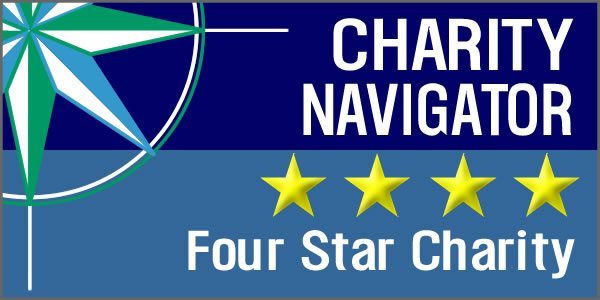
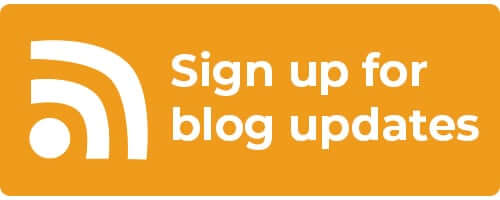
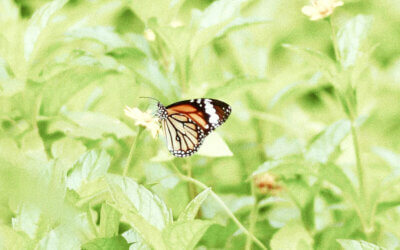
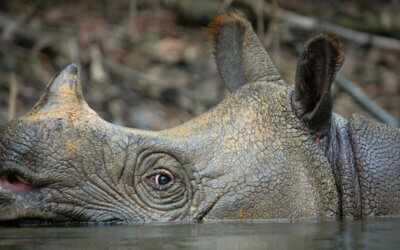
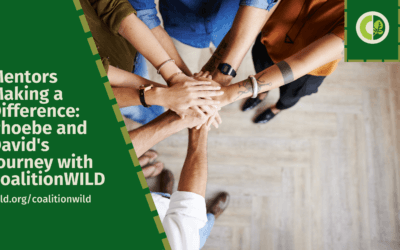

0 Comments